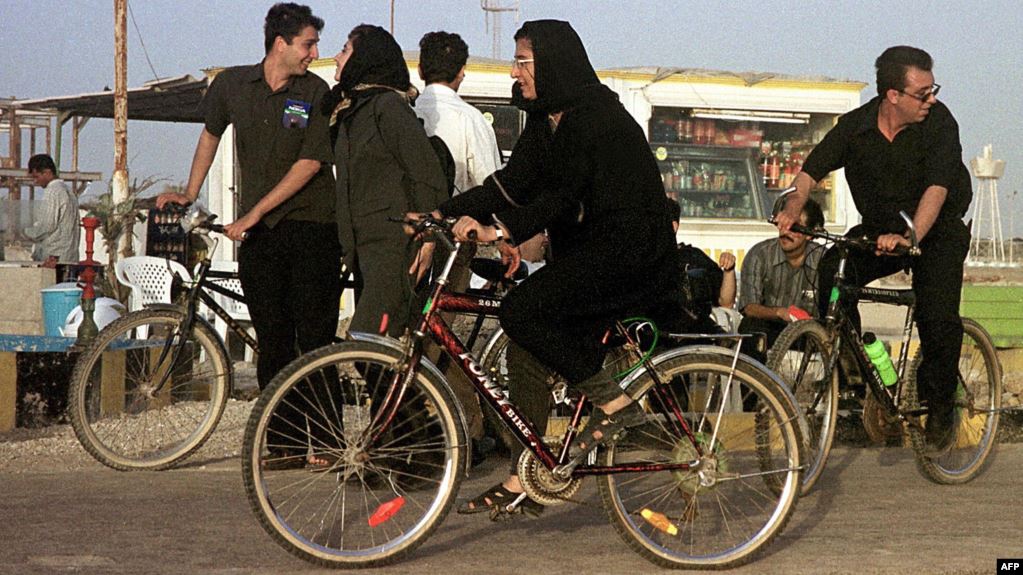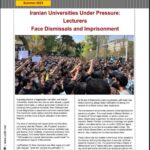
Isfahan is known as the city of bicycles, a reputation forged by its many cycling lanes, a bike-sharing system, and a government that actively promotes biking — that is, unless you are a woman.
The prosecutor in Iran’s third largest city announced on May 14 that women have been banned from cycling in public, saying it was “haram,” or prohibited under Islam.
Women had long assumed that they could bicycle in public if they respected Iran’s strict dress code, which requires women to cover their hair and body in public.
In 2016, Supreme Leader Ayatollah Ali Khamenei appeared to crush the notion with a fatwa explicitly banning women from cycling in public, but it was not strictly enforced.
Now, Isfahan’s announcement is being taken as a sign that authorities are enforcing Khamenei’s fatwa, adding to the long list of activities that Iranian women are deprived of taking part in.
‘Islamic Punishment’
Since the Islamic Revolution in 1979, the clerical establishment has enforced Islamic laws denying women equal rights in divorce and inheritance, prohibiting women from traveling abroad without the permission of a male relative, and attending major men’s sports events.
Prosecutor Ali Isfahani said police in Isfahan had been ordered to warn women against biking. He said police would confiscate the bikes of those who resisted, adding that repeat offenders would be subject to “Islamic punishment,” without elaborating.

Islamic Shari’a law does not mention bicycles because they were invented centuries after the birth of Islam in the 7th century. But Isfahani said “Muslim scholars” had “proved” that women biking was “haram.”
Isfahani said city authorities were designing a special “covered bicycle for women,” although he did not indicate what such a contraption might look like.
When Khamenei issued his fatwa against women riding bikes in September 2016, he said that “women often attract the attention of male strangers and expose society to debauchery, and thus contravene women’s chastity, and it must be abandoned.”
Bike Campaign
The fatwa was declared months after environmental activists in the western city of Arak launched a campaign — Car-Free Tuesdays — to tackle high levels of air pollution in the country.
But the campaign was aborted after a group of female cyclists were detained in the western city of Marivan following criticism from the city’s Friday Prayers leader. The women were released, but only after they signed pledges not to cycle again.
In Tehran, police forcibly dispersed female cyclists who had gathered in Laleh park for a group ride as part of the Car-Free Tuesdays campaign.
Khamenei’s fatwa prompted an angry reaction from female cyclists, who launched a social media campaign in defiance of the ban.
Hundreds of women have uploaded photos of themselves on their bicycles on social media under the hashtag
Videos of women riding bikes have also been posted on the popular My Stealthy Freedom Facebook page, the brainchild of exiled journalist Masih Alinejad that has garnered more than 1 million “likes.”













 Posted in
Posted in 












